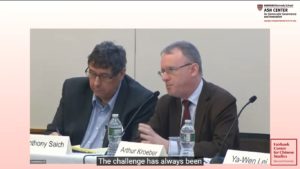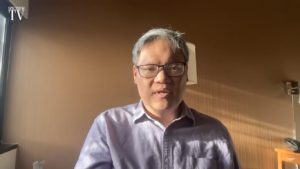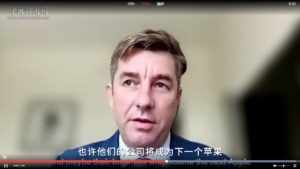politics - The Party is here to stayFor years people with different political sympathies in the West did find common ground in the conviction that China's political systems was going to change. The country could not manage its economy and other problems without more political participation of its citizens. Economic growth would push China's middle class to more political demands.
Tha arguments were different, but the outcome would be the same: after the economic changes, political changes were inevitable.
I have never been too sure about that. In China you could see how the government was able to manage it multiple crises and learn from it. And as long as the economic growth continues, there are not reason to expect much to change in the mostly a-political attitude of its citizens.
Arthur Kroeber points in the same direction in the Financial Times,
here in a pick up by A Glimpse of the World:The China-must-reform-as-we-say-it-must fantasy has been most clearly articulated by two recent books. China’s Trapped Transition, by Minxin Pei of the Carnegie Endowment, claims that corruption has so overwhelmed the Chinese state that it is rapidly losing the capacity to deal with all sorts of social problems. The Writing on the Wall: China and the West in the 21st Century, by Will Hutton (reviewed by Martin Wolf in the FT on February 2), asserts that “the Chinese economy and the Chinese Communist Party are in an unstable halfway house” between socialism and capitalism, and that the party must surrender its monopoly on power – soon – or risk economic collapse.

, discusses how China’s leadership balances between control and economic growth, looking at the zero-Covid policies and the property crisis at the Fairbank Center for Chinese Studies and the Harvard Kennedy School Rajawali Foundation Institute for Asia.

